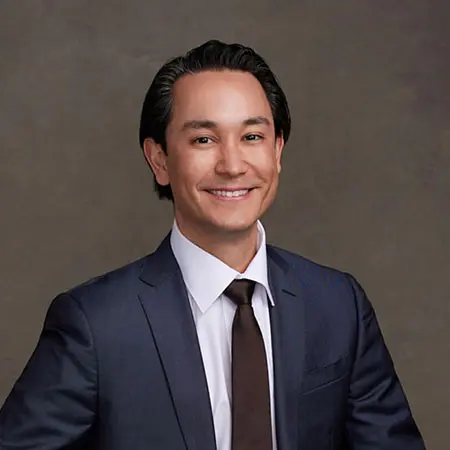December 11, 2009 | Rhinoplasty Recovery
7 minute read
Only Minimally. Very few patients who are happy with a doctor’s service will take the time to write into the rating sites. The ones that do write in are usually the complainers, the disgruntled, the bellyachers, and often their complaints have little to do with the quality of care received or their medical outcome but often only relate to whether the patient had a long wait, or whether the office staff or doctor were friendly. Some of these patients are angry with the disease they have and transfer that anger on to the doctor, who may have asked them to change their lifestyle habits, go on a diet, stop smoking, stay out of the sun, or start exercising. Some are angry because the insurance company didn’t reimburse them for their costs, as if the physicians had any control over the insurance company cartel! And some of these patients are not honest about their experience and rant on in hyperbole without anyone to verify their statements. Some doctors have been crucified by angry patients who had it in for the doctor despite the good care that was provided! Doctors have little recourse to respond to such on-line attacks because of the laws of patient confidentiality and because doctors don’t have time to search all these sites to even see what’s been said about them. One angry patient can go to all 40+ rating sites and post numerous comments on each. Best thing to do is to visit the doctor yourself and draw your own conclusions and talk personally with real patients who the doctor has treated. Most offices will provide you with names of patients willing to speak to other patients.
What is most dangerous about these rating sites is that there is no verification that the person sending in a comment is an actual patient. As distasteful and unethical as it is, there have been multiple instances where competitors have sent in false reports about another doctor to try to sabotage his practice. Also, previously dismissed employees from a practice have tried to get back at their doctor employer by spreading false comments. Even previous spouses have been caught posting lies. And, on the other side, some practices have made up and submitted in positive comments about their doctor. The Federal Communication Commission has ruled that spreading lies on the internet is a punishable offense. And the American Medical Association is studying this very problem now, and a company called Medical Justice is helping doctors when they are so maligned falsely.
Some patients are turned away by their physicians because they are non-compliant with suggested care or because they have unreal expectations about what the physician can do. This is especially true in cosmetic plastic surgery. These are precisely the patients most likely to complain vociferously.
As a physician, I know that doctors often cannot control being on time. Often the complexity of the patient’s problems is unpredictable and one patient’s visit might take longer than estimated. Or else the doctor may have had extended rounds in the hospital because of patients with complex medical concerns or because of a longer than planned for surgery. Would you want the doctor to rush his surgery on the patient just so he could be on time for your patient visit? Or maybe the last patient was late coming to the office and knocked the doctor’s schedule off kilter. Only psychiatrists can consistently be on time because their visits are time set.
I often recommend patients to the doctors I know are best in their fields. And, as predicted, those are the busiest of doctors and are in high demand. I don’t mind waiting long hours for them in their offices when I’m a patient, because I know that when they see me, they will give me all the attention I need and the best in care. I have one neurosurgeon colleague who is reputed to have no bedside manner. Do I care? No, because I know that he’s the best neurosurgeon in town, and if I have a brain tumor, he’s cutting it out.
Some patient rating sites rate doctors based on how soon they could get an appointment. Again, the best are going to be in the highest demand. Often patients let an illness or problem drag on until it really gets serious and then expect to be seen immediately. It’s best to establish a relationship with a primary care doctor for a general check up and to build a well-care relationship, so that when you do get sick, that doctor will be more apt to see you soon since you are an established patient or else can get you seen more quickly by a specialist on his referral.
Also, patients often lack the scientific acumen to judge their physician, nor do they see how he treats other patients and what his practice patterns are. Other doctors often have a great idea of how their colleagues do; they see their results; they see their complications; they know their dedication or lack of; they know their attention to detail. Patients may not know that their particular case was not the ordinary and that their doctor had cured 999 out of the last 1000 patients with the same malady!
Some patients complain because they feel the doctor’s fees are too high. They don’t recognize that doctors’ incomes have been dropping steadily since the government took over so much medical care and since the insurance companies have devalued the service the doctor renders. For procedures covered by insurance, the doctors receive the amount set for that service based on what the insurance company or government dictates. Some of the reimbursements now are lower for the same procedures that they were ten years ago. If the patient is paying more now, it’s because the insurance company is requiring higher deductibles and co-pays for the patient to pay. It costs me more to have a plumber come out to my house and fix a pipe than I would pay a physician, who has a high office overhead and 6 to 10 staff on payroll, to remove my child’s tonsils, which is an operation that can lead to death if the patient bleeds afterwards! For fees on such non-insurance items, such as plastic surgery, you need to pay for experience. When the recent plane that was disabled was set down safely on the Hudson River by an older seasoned pilot, that experience was recognized. But what about the commuter jet mishaps that happen too often with young, inexperienced pilots? Every patient is different as are all doctors. I want the doctor operating on me who has done 100+ of the procedure I’m having, not 3 or 4! Re-dos aren’t fun! We’ll talk more later about experience and how we can measure this.
Other ridiculous parameters rated by these sites are where the doctor went to medical school. The current reputation of a medical school may have no relation to what it was like 20 years ago when you doctor was there. And medical school is just the preliminary step in training. What really makes the difference is where he / she did the residency training after medical school, which for a facial plastic surgeon is six more years of training. And just because a doctor was at a good institution doesn’t mean he was at the top of his class. I’d rather have a doctor from a not-so-well known residency program who finished number one, than a doctor at a well known program who finished at the bottom.




